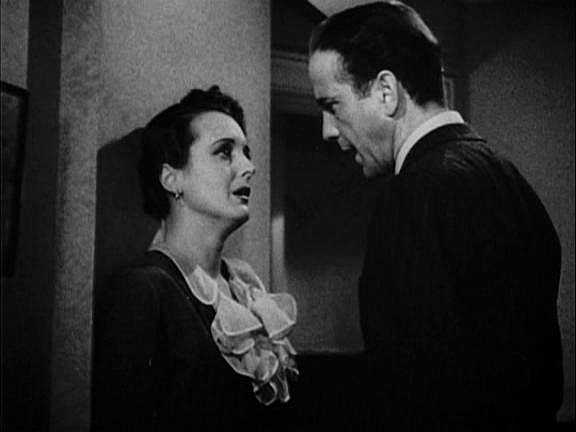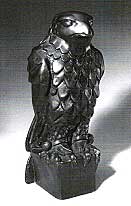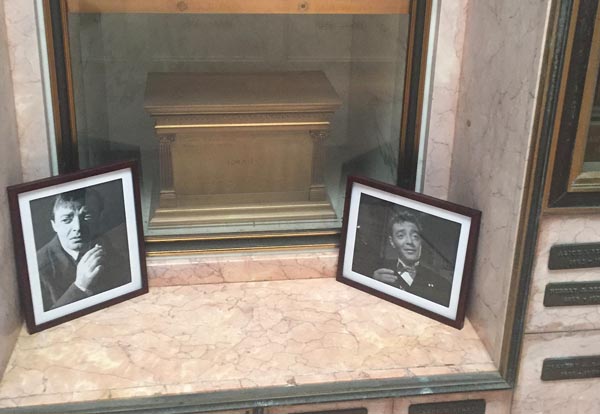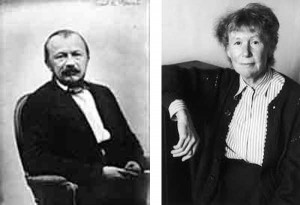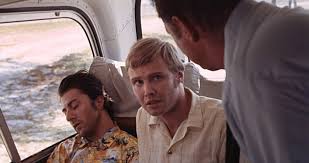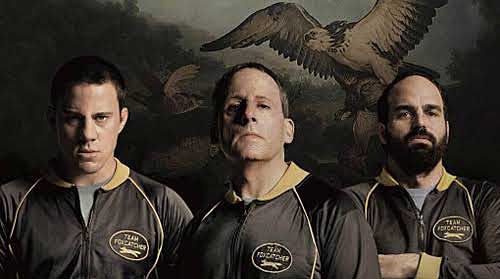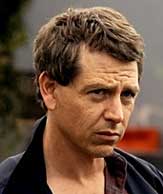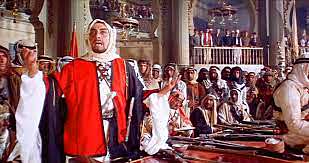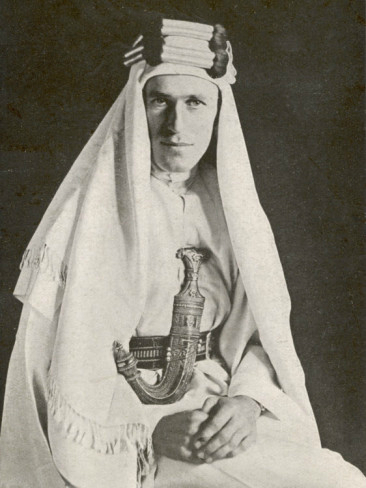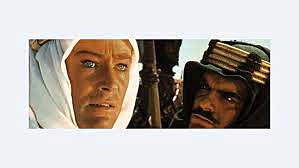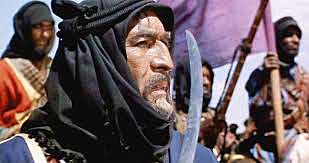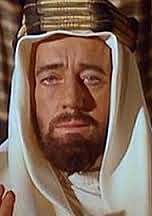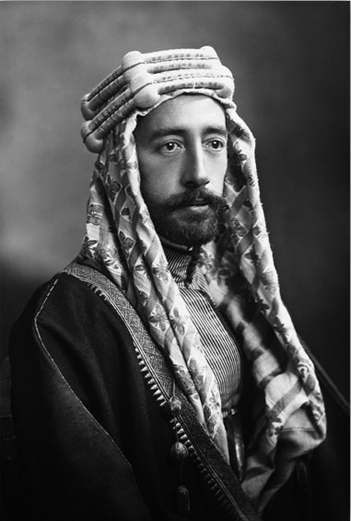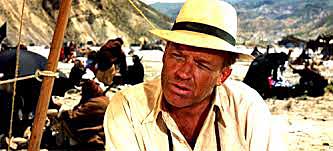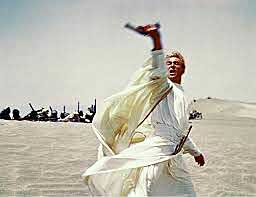The Varnished Culture's Thumbnail Reviews
Regularly added bite-sized reviews about Literature, Art, Music & Film.
Voltaire said the secret of being boring is to say everything.
We do not wish to say everything or see everything; life, though long is too short for that.
We hope you take these little syntheses in the spirit of shared enthusiasm.
A New Leaf
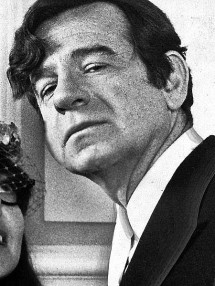
(Dir. Elaine May) (1971)
Henry Graham (Walter Matthau) has a big problem: his sizeable inheritance has dried up and as his disdainful uncle tells him, he is “an aging youth, with no prospects, no skills, no character.”
The confrontation with Mr. Graham’s solicitor, Mr. Beckett, is a classic. After explaining with some difficulty to his client that he is broke, Beckett declares that “I have given you $550 of my own money for only one reason. Disliking you as intensely as I do, I wanted to be absolutely certain that when I looked back upon your financial downfall, I could absolve myself completely of any responsibility for it.”
There ensues a lovely montage in which Henry, stumbling into a Manhattan street, realises that he is ‘poor in the very real sense of not being rich’, thereby kissing Goodbye To All That, driving his Ferrari 425 GTV4 slowly along affluent streets, visiting his tailor, dropping by a favoured posh eatery, checking if he was still welcome at his racquet club, fare-welling his polo ponies, fondling the objects d’art in his hideous apartment…His practical valet, Harold, recommends marriage as “the only way to acquire property without labour.”
Enter Henrietta Lowell (Elaine May), a rich but vacant Botanist, who hopes to “discover a new variety of fern that has never been described or classified.” Henry woos her by working up an immunity to the unique taste of ‘Mogen David’s extra heavy Malaga Wine with soda and lime juice’, vacuuming the crumbs away after she eats and boning up on Mendel’s experiments with garden peas. All the while, he is planning some botany of his own, with the help of poison from Henrietta’s garden shed.
After overcoming the formidable opposition of Henrietta’s grasping and unethical solicitor (“who do I know who’s pregnant and a good sport?”), surviving the shambles of a civil ceremony in which he accuses the flower girl (“that little woman”) of theft and vandalism (“she’s touching things…oh, no – she’s unscrewing my Montrazini”), standing up to Henrietta’s staff (without doubt the most contemptible bunch of thieves ever assembled) and helping her put her head into the correct part of her Greek style toga, Henry finds himself, surprise, surprise, falling for her.
The film looks unfinished and there are set-ups that just don’t come off, but May’s script is a dream and her turn as a beatific dill is sublime. Matthau is perfect as the misanthrope and the support roles are ripe but apt. “Damn, damn, damn: nothing ever turns out the way it’s supposed to, you work, you plan….”
Continue Reading →The Maltese Falcon
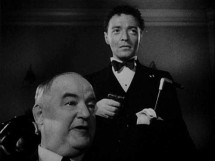
(Dir. John Huston) (1941)
Best film noir ever – even the colourised version seems shot in glorious black and white – the morality of the characters, on the other hand, reflect all 50 shades of grey. Humphrey Bogart is tough, wily, cynical detective Sam Spade, engaged by Mary Astor, pretending to be a damsel in distress.
Spade is being circled meanwhile, by an unholy trinity: Joel Cairo (Peter Lorre), Kaspar Gutman (Sydney Greenstreet) and Gutman’s henchman Wilmer (Elisha Cook Jr). They are all interested in an artefact originally chosen by the Knights Templar as a gift for King Phillip of Spain, known as the Maltese Falcon.
A brilliant script by John Huston (from the Dashiell Hammett novel) gives the main players full scope to emote to the hilt. Gutman says “I’ll tell you right out I’m a man who likes talking to a man who likes to talk.” Cairo wishes Spade to ‘recover’ the item for him: in ‘an honest, lawful way’ “if possible, but in any case, with discretion.”
So do yourself a favour and see this asap. But now, if you’ll forgive us, “there is no hurry, it’s getting quite late, and…”
Continue Reading →Alexandra’s Project

(Dir. Rolf de Heer)(2003)
A remarkable film, though hard to watch at times. Its creepy, claustrophobic plot device is so potent that it has been widely parodied: Alpha Male Gary Sweet has had a few beers at the office on his birthday and slides home (he lives in an attractively sinister cul-de-sac) to find that his put-upon wife (Helen Buday) has arranged a birthday surprise.
From the moment Gary settles in to watch the video Mrs Gary has assembled to catalogue his various faults, we can quickly conclude that this couple makes George and Martha seem like Mike and Carol Brady.
An intriguing but fanciful premise is given verisimilitude by being filmed in a stark and matter-of-fact, almost routine way, but fundamentally the film succeeds due to two extraordinary performances. Buday’s damaged wife is a bland zealot. Sweet evokes an average man who could descend to the coarse and brutish, a startling performance that almost overcomes the film’s central weakness, the disproportionate nature of the revenge.
TVC saw this in a freezing cold and uncomfortable cinema; hard wooden seats. Afterwards, we were so emotionally drained that whisky was needed. Gary Sweet is a true gentleman and a good Glenelg FC man (the only person to give a speech to Glenelg Vice Presidents in which he quoted F. Scott Fitzgerald) and just doesn’t deserve what he receives here!
Continue Reading →The Blue Flower

(Penelope Fitzgerald)
I thought that Penelope Fitzgerald’s novalised (geddit?) part-biography of the poet and philosopher Novalis would help me straighten out the Penelopes Lively and Fitzgerald and stop me from confusing Novalis and Nerval. Of course Lively and Fitzgerald are virtually indistinguishable, both being women who have won the Booker Prize. By an incredible coincidence, each is English and has one “e” in her surname. It is also easy to see how I have confused the two male writers – after all, Gerard de Nerval was the pseudonym of Gerard Labrunie who took his lobster Thibault for walks about bits of France while Novalis was the nom-de-plume of Georg Philipp Friedrich Freiherr von Hardenberg who was appointed Supernumerar Amtshauptman (which has something to do with salt) of his district in Germany. So alike!
Just to further complicate matters, Fitzgerald and her non-subject Nerval share a spooky physical resemblance: –
What’s the book like? Oh it’s ok. Starts out well. Gets boring. Boy meets girl whom no-one else likes much, he marries her. Penelope Whatsits can write, but this is not her best nerval.
Continue Reading →Dominion
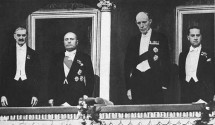
(C J Sansom)
Smog, smog smog. There is a lot of smog in this novel, which serves to hide the holes in this rather unlikely plot. But it’s an ok read if you believe in “holiday” books. World War I is known only as The Great War because there was no World War II. Halifax succeeded Chamberlain. England surrendered and Churchill is now an underground resistance leader. How differently things actually turned out! It’s all very well until the erstwhile surprisingly amiable and hands-off Nazis turn a bit nasty and start to disappear people. Importantly however, Germany’s most effective means of domination is to control Europe with finance rather than jackboots. How differently things actually turned out!
Continue Reading →Midnight Cowboy
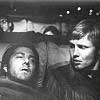
(Dir. John Schlesinger) (1969)

A glorious story of two World Class Losers. If you can make it in New York, you can make it anywhere, but Joe Buck (Jon Voight) and Ratso Rizzo (Dustin Hoffman) are freezing to death, living in utter squalor and their prospects of success as hustlers are approximately nil.
This is a great, bleakly charming and square-toed study of marginal depravity, with two towering performances (both suggesting an incongruous naivety), great direction and keen settings about some of the most scummy parts of the city. The deep sadness of the scenario is mitigated by a profound compassion, sense of humour and artistic restraint.
A superb film, worth driving out of your way to see, somewhere the weather suits your clothes. But watch out, because “I’m walkin’ here!”
Continue Reading →
Foxcatcher
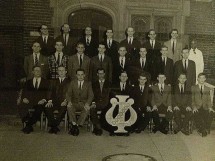
The historical facts are unedifying and abstruse. John Eleuthère du Pont was an heir to the du Pont family fortune, his personal fortune assessed at about $200m (U.S.). A decidedly odd fellow, he was nevertheless a man of some accomplishment as an ornithologist, philatelist, philanthropist (and fantasist).
He was also a sports enthusiast and established a wrestling academy at the family estate for a tilt at the Olympics. It was in pursuit of this that the Schultz brothers, world and Olympic wrestling champions, came to live on the du Pont estate, Foxcatcher Farms. The relationship seems to have been interesting, with Dave Schultz acting as de facto head coach to the team, which may have stoked some resentment from du Pont, who compounded his emotional volatility with substance abuse.
On 26 January 1996, du Pont, with his security chief, drove to a house on the estate occupied by Dave Schultz and his family. Winding down the window, he apparently said to Schultz, “Do you have a problem with me?” shot him 3 times and drove away. After a two day siege conducted by police with due restraint, du Pont was caught and convicted of 3rd degree murder, reflecting his diminished responsibility, and he died in prison in 2010.
Foxcatcher is an attempt to replay and explain all of this. Two key problems arise. First, the credible portrayal of mental illness/personality disorder, particularly as a causal phenomenon, is next to impossible. Anthony Perkins managed it with gulping and twitching in Psycho, but he had substantial help from Alfred Hitchcock, Robert Bloch, Joseph Stefano and Sigmund Freud. Ben Mendelsohn somehow did it in Animal Kingdom, without any tricks or script assistance. But usually it misses, as here.
The film is handsomely shot. There are some great set pieces. The bond between brothers is movingly done. The wrestling looks authentic (if you like that sort of thing). The three key performances are good – Tatum Channing as a knot-headed Mark Schultz, Mark Ruffalo as the kind, super-competent and doomed Dave Schultz, and Steve Carell (despite being lumbered with an oversized false proboscis) as Du Pont. Anthony Michael Hall, Sienna Miller and Vanessa Redgrave are effective in small roles.
But the other problem is that this is no high tragedy. Du Pont was no sturdy ‘stem of victorious stock’; he was a thin reed, of ambivalent sexuality and true oddness of the born rich. (One can see his weirdness and barely suppressed tyrannical nature in the You tube clip of him ‘outsmarting’ a fish at his little pond at Foxcatcher. You can also see how cannily Carell evokes du Pont’s clipped speaking style, a strange conversational cadence, and his essential lonely nerdiness, what a well known Australian sports-caster called a ‘delusion of adequacy’).
So in the final analysis, you wonder why they bothered with this trite exercise in haute psychopathia. The combined talents should have aimed higher. How about a biopic of Abu Bakr al-Baghdadi?
Continue Reading →Dior & I

(Dir. Frédéric Tcheng) (2014)
Disclaimer: P neither knows nor cares much about the industry of haute couture but this engaging documentary was an against-the-odds, enjoyable take on a fashion scenario so familiar it is almost a cliché: new designer and effete assistant arrive to head up the major collection of an iconic Euro fashion house with no time to spare.
Much eye-rolling, hand-wringing, and undoing beading late into the night, the heroic Parisian seamstresses pulling an all nighter (from their love of the work and helped by some early morning champagne). A last moment decision by designer Raf Simons that he did not like a white coat led to his assistant spray-painting it a dark grey in the Dior garden.
All in all, slight but rewarding. The Dior house is very stylish – check out the various walls of flowers in the showing rooms – but for P, the dresses seem a cage for the stick-like ladies showing them. Contrast the elegant dresses of the Head that still haunts the house, Christian Dior, which accentuate and empower the wearers rather than imprisoning them.
[Afterword: Mr Dior would be disappointed to learn that L tried to purchase his famous primer in the 2 Adelaide Dior locations, but failed due to the complete absence of any serving staff. What is the point of brand power if there is no service at point of sale?] Continue Reading →The Luminaries
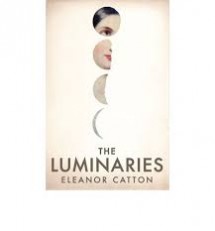
(Eleanor Catton)
The 2013 Man Booker Prize judges must have super-sensitive metal detectors, for they found gold in this boring, pointlessly complicated novel. After working through the dross, slag and tailings for only a short time I lost interest in magic bullets, missing crates, who had seen whom when and where and I had no idea anymore why it mattered. Snore. I still might have given this sometimes evocative book an additional star…but then I got to the appalling, awful courtroom scenes. Grrr.
Continue Reading →Lawrence of Arabia

(Dir. David Lean) (1962)
Despite Lesley having almost invariably impeccable taste, we strongly disagree with her charge that this is the Worst Movie of all Time. Dare we suggest L was prejudiced by the abundance of sand, the monolithic presence of her beloved Peter O’Toole, and the undeniable fact this is a ‘blokes’ picture’?
Long (few films these days have an overture, an intermission, an entr’acte) but not overlong (compare and contrast The Hobbit), this is film history on an heroic scale, focusing on T(homas). E(dward). Lawrence’s fostering of the revolt in the desert by numerous squabbling Bedouin tribes, against the casual disregard of their Turkish overlords in the dying days of the Ottoman Empire.
Whilst the British expeditionary forces were equally disdainful of the Arabs, their eyes turned towards the western front in the Great War, Lawrence had the perspicacity, the understanding of Arabia and an instinctive feel for opportunity, to strike a decisive blow against the enemy whilst outgunned, out-manned and out resourced. He understood, as Peter O’Toole says as Lawrence in the film, that the Arabian ‘desert is an ocean in which no oar is dipped, and on this ocean the Bedu go where they please and strike where they please.’
Lawrence understood the disparate group of people the rest of the world called Arabs, though he was frequently frustrated by them. In Seven Pillars of Wisdom, he said they “were a people of spasms, of upheavals, of ideas, the race of the individual genius. Their movements were the more shocking by contrast with the quietude of every day, their great men greater by contrast with the humanity of their mob. Their convictions were by instinct, their activities intuitional.”
They had a moment in their long and charged history where they could shine…and either they blew it, or others, as usual, blew it for them. It remains one of the most important issues for humanity – how do we reconcile the passion of men? Without killing them all, that is, as we are wont to do at times, imaging ourselves as gods?
David Lean and his crew spent over a year, what must have seemed an eternity, in the desert. The Arabian landscape is challenging and extraordinary and Lean is said to have drawn some inspiration from the desert scenes in John Ford’s classic The Searchers.
Together with Peter O’Toole, the desert is the star. Lean wrings every dramatic drop from the landscape. There are the opening scenes of Lawrence’s journey to find Price Faisal. There is the famous entrance of Omar Sharif at the well. There is the crossing of the Nefud desert en route to attack Aqaba, sneakily, from the land, where we have the sterling quarrel between Lawrence and Sherif Ali (much derided by P’s better half elsewhere) about going back to rescue the stranded Gasim and the moment when he returns from God’s anvil, having saved the wretch from certain death, a moment to melt (almost) anyone’s heart.
The art direction, the score (and the period songs), the cinematography, are a dream. It must be seen at a cinema, where it seems to be painstakingly painted on the screen. Consider, for example, the early scene changes from Lawrence’s dark little map room, to the officers’ mess, to Mr Dryden’s superb office, where Lawrence says that going into the hellfire of the Arabian sands is ‘going to be fun’, to a desert sunrise that dissolves to a grand vista of mountainous sand dunes in an impossible, unworldly land scape, two camels and their riders a speck on the horizon. This to the sweeping, soaring music of Maurice Jarre as conducted with Sir Adrian Boult, imitated but never matched, let alone bettered.
The script is literate and informed, with well-rounded characters, occasionally straying into caricature. Michael Wilson supplied the history and politics; Robert Bolt the dialogue and a few touches emphasising Lawrence’s essential strangeness and suggesting his ambivalence in personal relationships.
There is an interesting array of performances. Peter O’Toole annoyed some with his playing but if you consider it seriously, he does very well portraying such a scratchy, oblique, tormented character, who is so uncomfortable in his own skin yet who aspires to greatness of the most flamboyant kind. T.E. was more of an insider than Bolt writes him and it is fair to say the overall production values have a deifying effect, but O’Toole’s Lawrence is neither statue nor puppet. What it amounts to, at the end of the so-called Golden Age of Film, is an old fashioned Star Turn. (And nil nisi bonum).
Omar Sharif is charismatic as Sherif Ali, Lawrence’s second banana. Anthony Quayle is solid and stolid as Major Brighton. Anthony Quinn, the all purpose ethnic, is wonderfully thorny and earthy as Auda, the Howeitat chieftain.
Jack Hawkins is terrific as a wily General Allenby, constantly declaring himself a simple soldier yet exploiting the inspirational Lawrence for all he’s worth.
Alec Guinness had a surprisingly close resemblance (though paler) to the man who would become Faisal I, King of Iraq. Peter Sellars had great fun doing the Guinness walk as Faisal, but truth be told, it is a good portrayal of a lofty warrior king with a cunning sense of advantage. One great moment in the film comes during the parley over the spoils after the fall of Damascus, when Faisal says, evenly, of Lawrence that we (the Arabs and the British) “are both glad to be rid of him, are we not?” Yet he also says to the departing figure, without irony, “What I owe you is beyond evaluation.”
In fact, you can never keep strict accounts when dealing with politics in the middle east. By 1920, Faisal was ejected from Syria, without any strong opposition from General Allenby. Lawrence intervened and ensured Faisal had a throne in Mesopotamia, with the British pulling the strings. Faisal out-manouevred them and gained independence for what was now called Iraq (being created, along with Syria, in the Sykes / Georges-Picot carve up of the Levant and points west), only to lose patience with his subjects and pass away in a luxury hotel in Switzerland in 1933, aged 50.
In retrospect, this is a shame, given Iraq’s benighted history since then. However, as is implicit in the film, all gains in war are fleeting, the parties neglecting to remember Clausewitz’s famous dictum that ‘an object should be relinquished when its value was outweighed by the cost of its gain.’ In any case, the historical aspects of the film are very flimsy indeed. The grudging statement, made by Hawkins as Allenby on the steps of Westminster Abbey, to the effect that the revolt in the desert played a decisive part in the middle eastern campaign, is pretty much a load of codswallop. Plenty of Arab tribes stayed with the Turks, who happened to be bugging out of Arabia in any case, as the Ottoman Empire dissolved.
Claude Rains is suave as Mr Dryden from the Arab Bureau. Arthur Kennedy as Jackson Bentley (a sort of Lowell Thomas) reprises his knowing and cynical reporter from Elmer Gantry. Jose Ferrer is wonderfully creepy as a Turkish Bey with eyes for Lawrence. Various supports mug and leer but we commend Michel Ray and John Dimech as Lawrence’s servants/acolytes, Zia Mohyeddin as a guide and I. S. Johar as Gasim.
In the final analysis, despite the carping about accuracy and a vague sense of over-ripeness, Lawrence of Arabia is a wonderful elegiac film, an exemplar, in fact, of old fashioned epic film-making.
Continue Reading →

